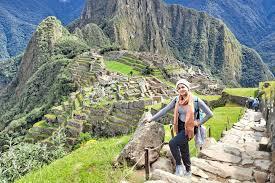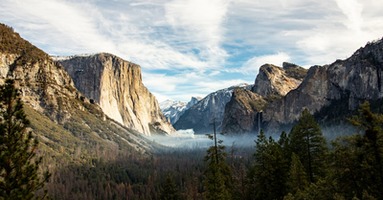
Adventure travel is more than just exploring uncharted landscapes or seeking adrenaline-fueled activities. For many, it’s an opportunity to connect with local communities, fostering deeper cultural understanding while creating memorable experiences. This approach to travel bridges the gap between adventure and cultural immersion, offering a unique way to learn about the world while stepping far outside your comfort zone.
Combining outdoor exploration with cultural exchange allows travelers to engage with people, traditions, and stories that can’t be found in guidebooks. From dining with local families to participating in centuries-old rituals, these experiences enrich not only the traveler but also the communities they visit.
Why Cultural Immersion Matters in Adventure Travel
At its core, cultural immersion is about building genuine connections with the people who live in the places you visit. It transforms a trip from simply “seeing” a destination to truly “experiencing” it. For adventure travelers, this often means interacting with locals in remote or rural areas, where traditional lifestyles and practices remain intact.
Cultural immersion fosters mutual respect and understanding. It helps break stereotypes, challenges preconceived notions, and encourages empathy. When you sit down for tea in a Himalayan village, learn how to weave textiles in Guatemala, or dance in a tribal ceremony in Africa, you’re engaging in a shared human experience.
For the communities involved, cultural tourism can offer economic opportunities, encourage the preservation of local traditions, and create a sense of pride in their heritage. However, it’s crucial that these interactions are approached with respect and mindfulness to ensure they are beneficial for everyone involved.
How Adventure Travel Encourages Cultural Immersion
Adventure travel often takes you far from the tourist crowds, placing you in closer contact with local communities. Here are some ways it promotes cultural immersion:
1. Homestays and Community Lodging
Staying with a local family or in community-run accommodations offers firsthand insight into everyday life. You’ll experience authentic meals, customs, and conversations that you wouldn’t get in a hotel or resort. Many regions around the world, from the Andes to Southeast Asia, offer homestays as part of their tourism infrastructure.
2. Participating in Local Activities
Adventure travel often incorporates cultural activities, such as cooking classes, traditional crafts, or farming. Learning to fish with coastal villagers in Thailand or joining a tea-harvesting crew in Sri Lanka gives you a deeper understanding of how people live and work.
3. Guided Experiences by Locals
Local guides bring their culture to life through storytelling, shared knowledge, and personal anecdotes. Whether you’re hiking through Patagonia with a native guide or exploring ancient ruins with someone whose ancestors built them, these insights can transform an ordinary tour into a meaningful cultural exchange.
4. Attending Festivals and Ceremonies
Many adventure travelers time their trips to coincide with local festivals, celebrations, or religious ceremonies. These events often reveal the heartbeat of a community and its unique identity. Participating in a Day of the Dead celebration in Mexico or Holi in India offers a glimpse into cultural traditions that have been passed down for generations.
5. Contributing to Community Projects
Some adventure tours include opportunities to give back, such as volunteering for conservation programs or community development projects. These experiences let you connect with locals on a deeper level while making a tangible, positive impact.
Destinations for Adventure Travel and Cultural Immersion
If you’re looking to combine adventure and cultural discovery, certain destinations offer unparalleled opportunities:
1. Peru
Hiking the Inca Trail or exploring the Sacred Valley gives travelers the chance to meet Andean communities, learn about ancient agricultural practices, and participate in weaving workshops. The country’s blend of natural beauty and cultural depth makes it a top choice for immersive adventure travel.
2. Tanzania
Beyond safaris, travelers can visit Maasai villages to learn about their way of life, take part in traditional dances, and explore the Serengeti alongside local guides.
3. Nepal
Trekking in the Himalayas offers an incredible combination of natural beauty and cultural exchange. Homestays in Sherpa villages and visits to monasteries provide insights into the traditions of this mountain region.
4. Vietnam
Adventure activities like cycling through rice paddies, hiking in Sapa, or kayaking in Halong Bay often intersect with opportunities to engage with local farmers, artisans, and fishermen.
5. Morocco
From trekking in the Atlas Mountains to exploring Berber villages, Morocco is a cultural treasure trove. Visitors can learn traditional cooking techniques or shop for handmade goods in bustling souks.
Responsible Travel: Tips for Meaningful Connections
Cultural immersion requires mindfulness and respect. Here are some tips to ensure your experiences are authentic and ethical:
- Learn Basic Phrases: A simple “hello” or “thank you” in the local language can go a long way in building rapport.
- Dress Appropriately: Research local customs and dress codes to show respect for the culture.
- Ask for Permission: Always ask before taking photos of people, sacred sites, or ceremonies.
- Support Local Businesses: Choose local guides, buy handcrafted goods, and dine at locally owned restaurants to contribute directly to the community.
- Be Curious, Not Intrusive: Show genuine interest in learning about a culture without imposing your own values or judgments.
The Lasting Impact of Adventure and Cultural Immersion
Adventure travel that incorporates cultural immersion isn’t just about ticking destinations off a list—it’s about creating memories, expanding worldviews, and building meaningful connections. These experiences have a way of staying with you long after the trip ends, influencing how you see and engage with the world.
For the communities, responsible cultural tourism can provide vital income while preserving traditions and fostering cross-cultural understanding. When done respectfully, this type of travel creates a win-win situation that benefits both travelers and hosts.
Conclusion
Adventure travel combined with cultural immersion offers a transformative way to explore the world. By connecting with local communities, you can gain a deeper appreciation for their traditions, histories, and everyday lives. These experiences enrich not only your journey but also your understanding of humanity.
Start planning your next culturally immersive adventure today. Visit www.outdooradventures.pro for tips, guides, and recommended destinations that bring together adventure and meaningful connections.

.png)

-(2).png)


.png)


.png)





-(1140-×-106-px).png)
.jpg)
Leave Comment Below